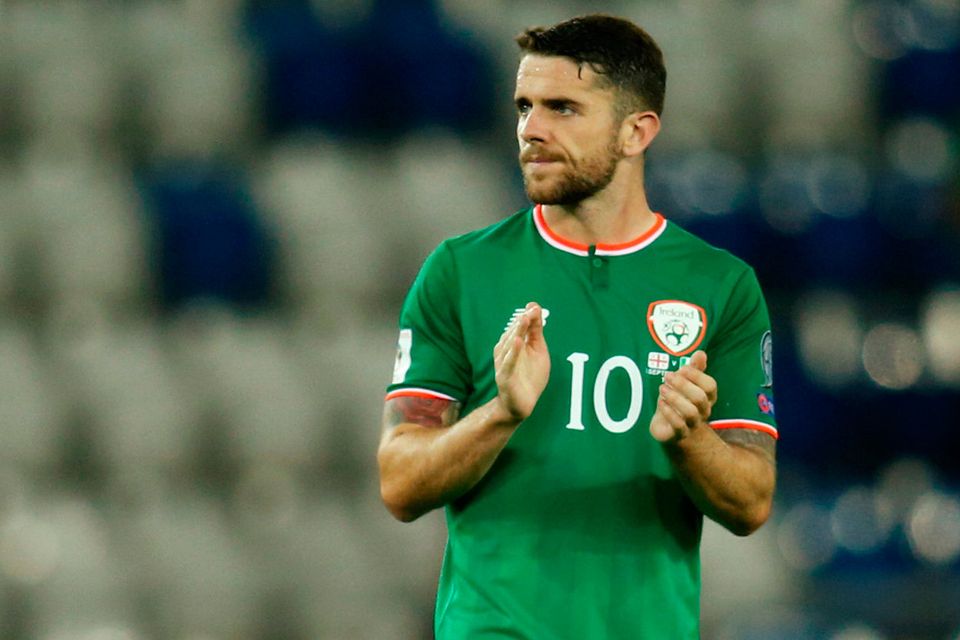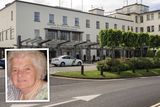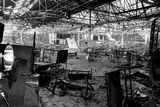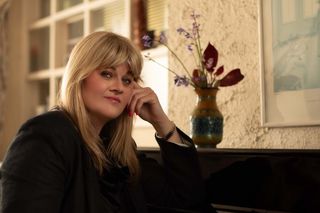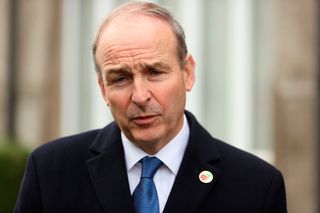Ireland's bandwagon just keeps rolling in circles
Robbie Brady – Ireland’s current Young Player of the Year – who turns 26 next January. Photo: Reuters/David Mdzinarishvili
If the outfield players of Matt Lowton, Fabio, Chancel Mbemba, Lewis Dunk, Josh Onomah, Matt Phillips, Andrew Surman, Charlie Austin, Jack Cork and Scott Arfield were put together, it's difficult to imagine anyone expecting too much of them, even after they went online to find out who some of them were.
They are a slightly mashed-up group from Burnley, Middlesbrough, Newcastle, Brighton, Aston Villa, West Brom, Bournemouth, Southampton, Burnley and Burnley - the sort of teams that prompt people to slag off the Sky Sports marketing department when they are included in any 'Super Sunday' fixture.
Their club team-mates, in relatively the same positions, would be Stephen Ward, Cyrus Christie, Ciaran Clark, Shane Duffy, Glenn Whelan, James McClean, Harry Arter, Shane Long, Robbie Brady and Jonathan Walters, the 10 outfield players who, individually and collectively, performed so poorly against Georgia on Saturday.
There's little excuse for being so ordinary against the lowest seeds in the group and, post-match, neither O'Neill nor any of the players pretended the performance was any better than it was.
Abysmal
It wasn't Steve Staunton arguing that the result was all that mattered after an abysmal performance in the 2-1 win over San Marino, who, Staunton argued, "are going to be a handful as the group goes on" and "were going to develop" in the future. In the 10 years since, they have lost 62 games, drawn one and scored seven goals.
Those words, among others, held Staunton up to the sort of ridicule which all but eroded the reputation earned over 102 caps and from which his would-be career in management never recovered.
O'Neill was never going to make a similar mistake in a post-match interview, but neither was he going to throw his players under the bus, especially when he needs those same men to perform tomorrow night in a game where victory will put Ireland top of the group with two games remaining.
It's surprising how many people continue to be taken aback by O'Neill's spikiness in post-match interviews and brings to mind Roy Keane's response when it was put to him that their managerial double-act would take a good cop/bad cop approach: "You don't know Martin as well as you think you do."
O'Neill's first loyalty is, and always will be, to his players and while reporters are absolutely entitled to ask any question they want, O'Neill is entitled to do the same with his answers, regardless of what type of light it casts him in.
Had he gone down the road of labelling the performance "embarrassing", "disgraceful" or "shameful", he would probably have been praised to the hilt by those on social media who used the same descriptions and who, presumably, have never just had a bad day at the office.
There is obviously a desire for Ireland to play a better style of football, but it remains a mystery why those who criticise the Premier League for its lack of technical quality seem to expect the Ireland players who play in it to fizz the ball around the pitch once they put on a green shirt.
Middlesbrough are currently ninth in the Championship, which puts them 29th in an overall English football league table; Aston Villa are 38th; West Brom are fifth; Burnley 10th; Newcastle 14th; Bournemouth 18th; Brighton 17th and Southampton eighth.
That gives the clubs from which Ireland's players were drawn on Saturday an average league position of 17th, and even that comes with a slight asterisk given Long's struggles to get into the Southampton team.
By historical comparison, the starting Irish team who were beaten by Spain at the 2002 World Cup of Given, Finnan, Harte, Breen, Staunton, Kelly, Kinsella, Kilbane, Holland, Keane and Duff went into the competition with their clubs having finished on average of 10th position in the Premier League in the previous season. The asterisk, of course, is that it should have been higher but for an unfortunate incident on a small island in the Pacific.
It's early in the season, but that 17th position would make Ireland the equivalent of Brighton. Last season, it would have made us Watford, the year before Sunderland and the year before that Aston Villa.
Even in games they'd be expected to win, none of those would be confident of passing their opponents into submission, given that they usually contain a few players who are more accurate with their head than they are with their feet. Instead, they revert to type, which usually involves 100pc effort to make up for a lack of quality and getting enough good results to achieve their objective.
Magic
Occasionally, these teams - just like Ireland - can produce a moment of magic, like a Robbie Brady free-kick, coupled with a ferocity which overwhelms higher regarded opponents. However, the reason those clubs are where they are, and the players are at those clubs, is that they can't do it every week.
Wales, too, have a similar predicament with half of their team and while Chris Coleman might encourage his players to be more expressive than O'Neill ever will, it helps to have players from Tottenham and Arsenal and a talisman who has won three Champions Leagues. Ireland's team can't even get a player into the competition.
Even with that talent, Coleman was still brave enough to turn to Ben Woodburn in a game Wales desperately needed to win and a child born on October 15, 1999, provided the inspiration. If Ireland need something similar tomorrow night they'll turn to Wes Hoolahan, born May 20, 1982, which makes him over twice Woodburn's age.
Even if he could find one, it's difficult to imagine O'Neill trusting a teenager to break a deadlock, but for all his conservatism, it's hardly his fault that Robbie Brady is the current holder of the Young International Player of the Year award when, by the time his successor is named next year, Brady will have turned 26.
O'Neill's concern isn't with the next generation and tomorrow we'll revert to type of pre-match optimism, passionate atmosphere and perhaps a bit of skill or luck that will get us the necessary result.
As O'Neill put it: "We're going to put heart and soul into the match on Tuesday night. And we're going to try and beat a side who are probably technically better than us."
It's a quote to fit almost any period in Ireland's recent history.
If they finish the job in the coming months, O'Neill will be absolutely justified in arguing that he has done his job in a results business.
Supporters can plan their routes to Russia, locals can prepare to become social media superstars when their tyres are fixed by random Irish people and those who slaughtered the team on Saturday will have long forgotten being played off the park by Georgia and climb aboard the bandwagon.
Even if, as it has been for most of the last 15 years and will probably be for the next 15, that bandwagon continues to go around in circles.
Join the Irish Independent WhatsApp channel
Stay up to date with all the latest news
